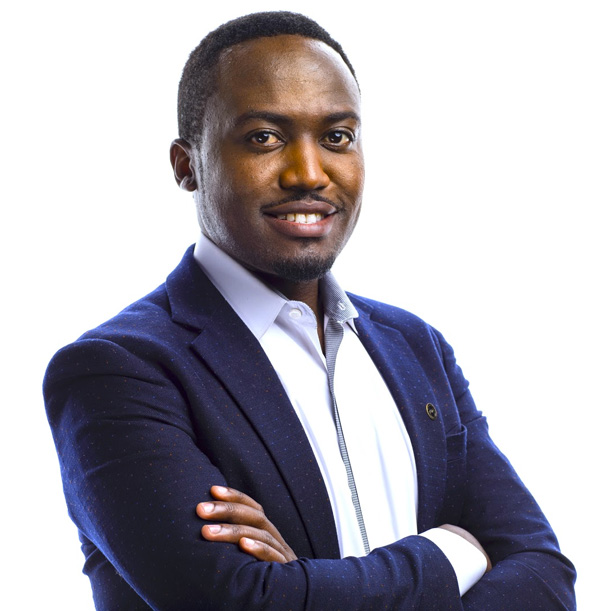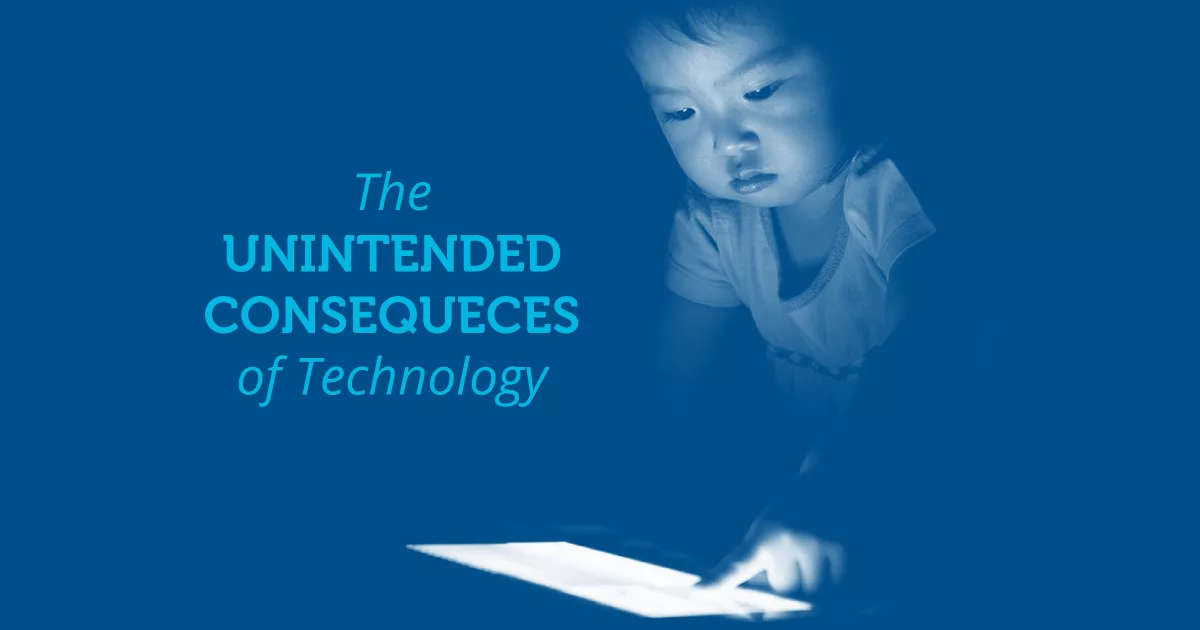 Christopher Ategeka is a serial entrepreneur and engineer with a mission to protect humanity from the destructive forces of technology. His latest role is Founder and Managing Director of UCOT Inc, an organization that identifies and fosters solutions for the unintended consequences of technology (UCOT) across the globe. You may have met Chris at SOCAP15 when his first organization, Rides for Lives, was selected to receive an Entrepreneur Scholarship. He has since founded three different impact ventures. Chris is also an internationally acclaimed speaker, having delivered talks to audiences at TED, Clinton Global Initiative, and The United Nations. Among other honors he has been named a World Economic Forum Young Global Leader, TED Fellow, Ashoka Fellow and Echoing Green Fellow.
Christopher Ategeka is a serial entrepreneur and engineer with a mission to protect humanity from the destructive forces of technology. His latest role is Founder and Managing Director of UCOT Inc, an organization that identifies and fosters solutions for the unintended consequences of technology (UCOT) across the globe. You may have met Chris at SOCAP15 when his first organization, Rides for Lives, was selected to receive an Entrepreneur Scholarship. He has since founded three different impact ventures. Chris is also an internationally acclaimed speaker, having delivered talks to audiences at TED, Clinton Global Initiative, and The United Nations. Among other honors he has been named a World Economic Forum Young Global Leader, TED Fellow, Ashoka Fellow and Echoing Green Fellow.
SOCAP: You’re currently pioneering a movement around the unintended consequences of technologies (UCOT). What would you like for people to know about this challenge?
Chris Ategeka: Humanity is at a crossroads. Major economic, socio-political, cultural shifts are happening in front of our eyes. These shifts are coming with many benefits as well as many negative unintended consequences. On the sunny side, the internet helps us get news as it’s happening. 3D printing has led to prosthetic limbs that give people their freedom of movement back. We’re curing diseases. On the positive side, technology is amazing and doing great things for humanity.
But if you look on the flip side of many technological advances, you will find serious side effects suffered by the environment or people. These side effects are unintended, willfully ignored, and sometimes conveniently ignored. Take the internet for example. In this super connected world of ours loneliness is becoming a public health crisis. Some people have a million friends in the digital world, but no friends in the real world. A recent CDC report showed that suicide rates in the US are on the rise. If you look at western culture, we live in a time where people have longer conversations with technologies like Siri and Alexa, than they have with real human beings. That should be a source of concern for all of us.
We should be more concerned about technology-driven shifts in the labor market. Mass autonomous transportation is coming, it’s just a matter of when. Drivers’ jobs are at risk due to artificial intelligence and other innovations. How can we prepare ourselves for this transition? We know it’s coming–we must figure out how to have a smooth transition. Workers in almost in every industry are facing job obsolescence.
For every technological innovation, there are a host of potential consequences we need to be solving. We are busy making kids’ screens brighter than their futures. By 2050 there’ll be more plastics in the ocean than fish. With our never ending upgrades, electronic waste is going to be the next plastics. Data and privacy breaches have become so common they aren’t even news anymore.
Falsehoods and misinformation and alternative facts–all these have abilities to shape governments and shape systems that have the power to dictate how future generations are going to turn out 50 to 100 years from now. All of this is to say, technologies are creating a lot of positives, that’s why we’re doing it. But there is a side of technology that is not getting enough air time or resources. Throughout human history, we have been able to invent technologies that create both heavens and hells at the same time. If we are aware and intentional we can try to minimize the damage.
SOCAP: What’s your call to action to the SOCAP Community? How can people get involved in the movement?
Chris Ategeka: Tech is fundamentally changing society as we know it. We have to work on solutions to challenges caused by technology from three perspectives.
First, we must examine our own individual consumption. We must ask ourselves, How am I utilizing technology? Is technology changing my behavior in a negative sense? Be mindful about the consequences of your own actions. Even small actions, such as checking facts before you share an article, will have an impact.
Secondly, spread the word. Governments and corporations do not have as much as power as people do. Most people don’t realize that. People have power. You show your power through voting and through how you choose to spend your hard earned money. Corporations and governments, they know people have this power. If enough of us choose to say, I will not buy this product from this corporation because it’s harming the environment or humanity, they will respond.
Advancing public awareness and understanding of technologies’ unintended consequences needs to happen. More of us need to be thinking about the long term effect of these technologies. Start thinking about 50 to 100 years from now–think about the future individuals who are most going to be impacted by these consequences. They haven’t been born yet. They can’t participate in markets, they don’t vote. Even though we won’t be here to see the consequences of our actions, we have to be intentional when trying to figure out how we can help those future generations.
A greater number of people must look at solutions to these challenges from funding and entrepreneurial perspectives. We need more funders and investors to look into the side of technology that’s not pleasant. We need to be intentional in the products and services that we create. By default, any solution that preemptively addresses its own consequences has a double or triple bottom line. We have built an innovation hub that is investing in startups that are creating solutions to the unintended consequences of technology. We invest in companies that are developing product solutions and we invest in people who are coming up with new ideas for how to solve challenges caused by various technologies.
In pioneering this space we are creating a UCOT platform to attract more individuals to the movement. We need to build a community. No one can solve this thing alone. There’s a lot of us who care enough, who have the skills to do something about it, who have resources and money to put into it to see some change. I invite the SOCAP community to come be part of this unintended consequence movement. We have a conference coming up, The UCOT World Forum, in San Francisco this October 29th-30th to raise awareness and understanding of UCOT. Only by bringing our forces together can we create large scale action.
We also host Jeffersonian dinners in different parts of the country to bring together groups of individuals who care about sustainability and the future of humanity. You can host one. We can provide all the resources to help you be able to get this dialogue and conversation going. We host a podcast and produce resources to help get the word out. There are a lot of people who are passionate about this issue who want to see change. We must work together to raise awareness until a majority of the world acknowledges that there is a problem.
SOCAP: What is inspiring you in your work right now? What is giving you hope?
Chris Ategeka: Humanity is giving me hope, despite the fact that the news makes it seem as if the whole world is on fire. The future can seem bleak. Pessimism is seductive. But when despair sets in you are defeated by default. I believe that the vast majority of humanity wants to do what’s good for us all.
Technology is here to stay and unfortunately so are the many unintended consequences. With more development, I predict more negative side effects. Our long term view of this opportunity is to create a solid platform, raise awareness of these issues, and to develop solutions. That’s the best I can do as an individual. We hope to inspire others to come onboard so we can have a significant impact.
In times of pessimism I would argue that the most reasonable perspective is optimism. Easier said than done, especially if you are facing the challenge in real time. But optimism inspires action. You dream of a better day. You make yourself believe that a better tomorrow is within reach and that’s how you keep fighting. One of the characteristics that has got me through life thus far, because I’ve seen a thing or two in my day, is positive attitude. Especially in times when circumstances dictate otherwise. It has helped me maintain my energy and optimism. In the face of greed and bigotry and racism and irresponsible innovation and the like we need to keep a positive attitude and keep fighting. Sustainability of the human race and our planet truly depends on it. I believe that the powers that glue us together as team humanity will prevail.
SOCAP: What’s one lesson that you learned that you wish somebody had told you when you were starting out as a social entrepreneur?
Chris Ategeka: I have two to share. The first one is to embrace change. As humans, when things are working we don’t want to change. Personal insecurity can sometimes get in the way of accepting change. You may see things aren’t working, but you don’t want to change because you don’t want to come off as a failure. That leads to stagnation. No single path is set in stone. Whatever you’re working on now, almost certainly will change.
The second is network, network, network. I would add infinity to that. When you’re still trying to find your place in the world and where your abilities can be best utilized, your network is your net worth, as they say. People invest in people. People want to support people they have been introduced to. If you don’t have any network, people won’t buy. Great ideas and great talent can only take you so far. Who you know matters a great deal.
Resources
Watch Christopher Ategeka’s TED Talk “How Adoption Worked For Me” recorded at TED Global in 2017.
Learn more about the UCOT Movement and the UCOT World Forum


